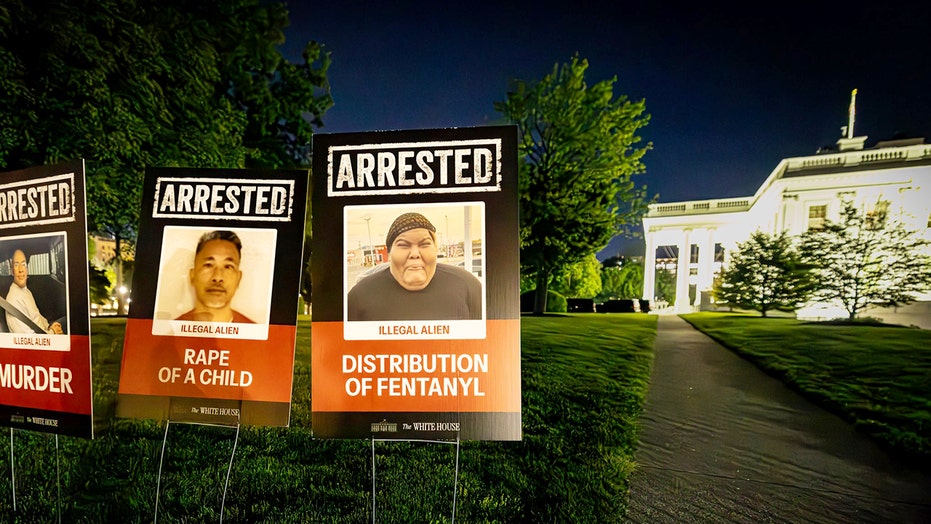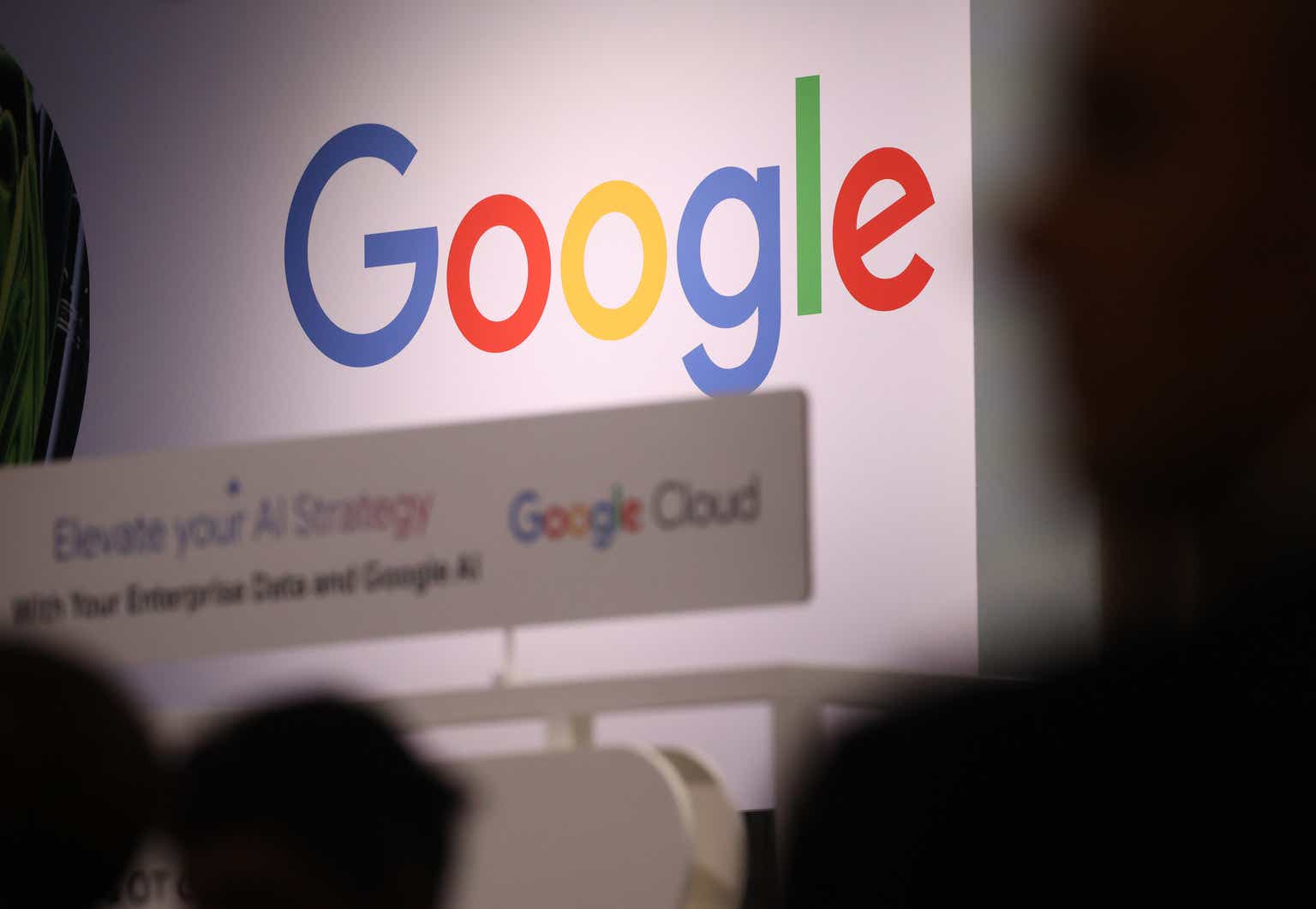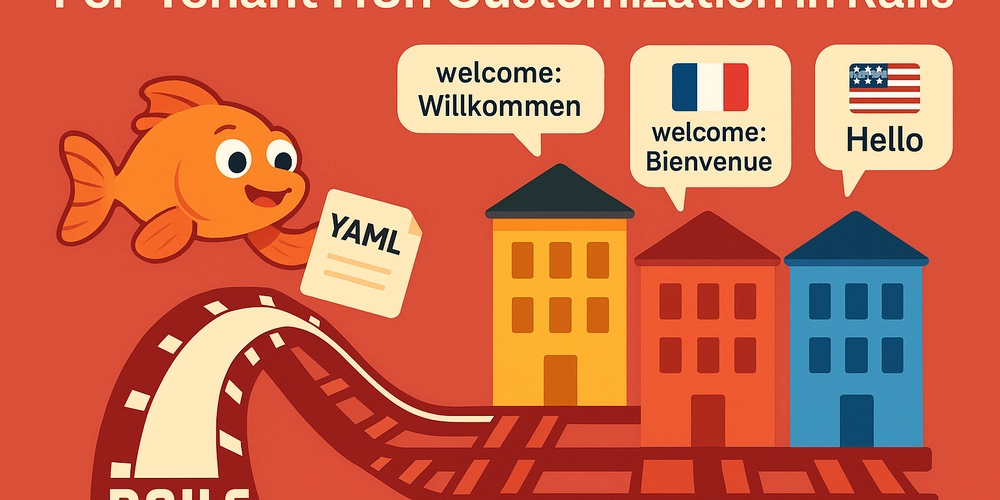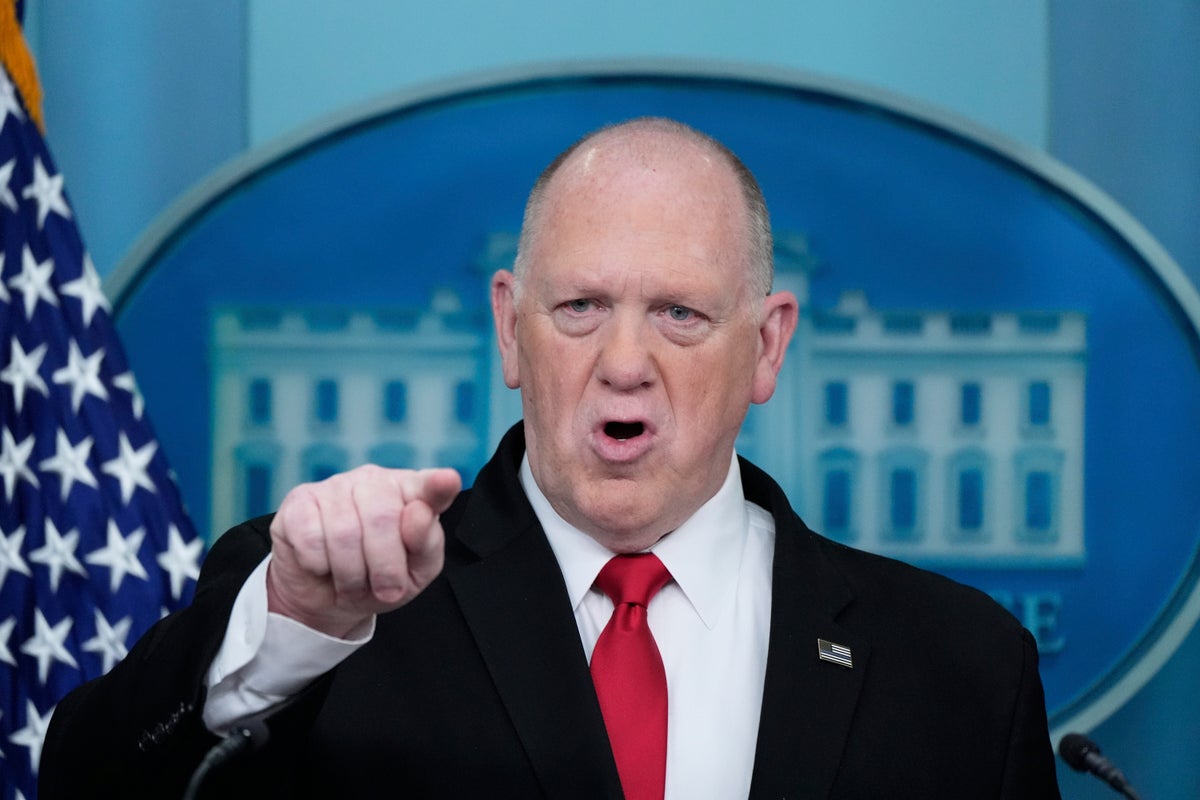Trump-Hitler comparisons risk boomeranging on Democrats
“I understand very well why it is wrong to compare Adolf Hitler’s Third Reich to any other movement,” former Democratic presidential nominee Al Gore conceded Monday as he rallied a crowd during San Francisco’s Climate Week. “It was uniquely evil, full stop. I get it,” he added. Then came the “but.” “But there are important...

“I understand very well why it is wrong to compare Adolf Hitler’s Third Reich to any other movement,” former Democratic presidential nominee Al Gore conceded Monday as he rallied a crowd during San Francisco’s Climate Week.
“It was uniquely evil, full stop. I get it,” he added.
Then came the “but.”
“But there are important lessons from the history of that emergent evil,” Gore said as he quoted Nazis who wrote that the first step in coming to power in Germany was “the conversion of all questions of truth into questions of power.”
“The Trump administration is insisting on trying to create their own preferred version of reality,” Gore said, delivering his kicker.
Gore’s use of a Nazi comparison as an attack line has become an increasingly familiar presence in politics.
Both parties have used Nazi-name calling against their opponents, though it recently has popped up more often with Democrats, who have ripped the Trump administration and what they see as the rise of an authoritarian government in the United States.
Republicans think Democrats are making a political mistake with the comparisons that will turn off the middle of the electorate and boomerang on them.
“The Democrats and media have overused these phrases to the point where they don’t mean anything anymore,” one national Republican political operative said. “You would think after two failed assassination attempts that they would have stopped using these ridiculous and loaded terms about [President] Trump and his supporters, but instead, they’ve doubled down.”
Gore is far from the only person on the left making the comparison. “Seinfeld” creator Larry David this week imagined going to a dinner with Hitler in a New York Times op-ed headlined “My Dinner with Adolf.”
David’s target was not just Trump but the comedian Bill Maher, who recently spoke about having dinner with Trump. Maher had said the Trump he met was not like the one he has regularly lampooned on his HBO talk show.
“Here I was, prepared to meet Hitler, the one I’d seen and heard — the public Hitler,” David wrote. “But this private Hitler was a completely different animal. And oddly enough, this one seemed more authentic, like this was the real Hitler. The whole thing had my head spinning.”
After David’s op-ed published, Maher responded by calling the piece “kind of insulting to six million dead Jews.”
“I think the minute you play the Hitler card, you’ve lost the argument,” Maher added.
Last fall, the media was up in arms along with many Democrats when tech mogul Elon Musk gave a salute to a crowd at a Trump rally in Madison Square Garden that critics said resembled the Sieg heil. There was also plenty of criticism of the full rally itself, which included a comedian comparing Puerto Rico to an island of floating garbage.
But some on the right saw that furor as a tipping point in the race between Trump and then-Vice President Kamala Harris that helped the Republican nominee win a second term in office.
“It just seemed like Democrats and the media were just waiting to use this again,” the GOP operative said of the Nazi talk at the time. “All it took was something as small as an awkward wave, and surprise, surprise, here they were ready to pounce.”
Of the more recent Nazi comparisons, some Republicans say it’s just too much and that such accusations actually prevent Democrats from making their own case for leading the country.
“It’s so overdone at this point that I’m not sure it holds weight very much,” said a second GOP political strategist. “It’s a pretty lazy effort to just stir the anger instead of actually getting to the root of whatever your complaint is.”
Some Democrats have expressed misgivings over the Nazi comparisons and suggest the party needs to connect those accusations to key issues voters care about.
“The challenge is communicating not just that you think this person is like this thing or this idea [Hitler or Nazis], but why you think that’s the case, why that’s a problem and how that impacts their life,” one national Democratic strategist told The Hill. “It’s not just Elon Musk does a Nazi salute. It’s Elon Musk does a Nazi salute as part of a power grab to make your life harder. That’s effective. Just name calling falls a little short.”
Others in the party argue the shoe fits and insist Trump is a unique threat to democratic norms and is displaying fascist tendencies.
These Democrats frequently note the infamous “Unite the Right” rally from 2017 in Charlottesville, Va., after which Trump sparked outrage by suggesting there were “very fine people on both sides” of the deadly clash between white supremacists and counterprotesters.
“We have an obligation and an opportunity to call balls and strikes as we seem them, and this ball is coming straight down the plate,” said Antjuan Seawright, a leading Democratic strategist and political operative.
“Part of good messaging is telling the hard truth,” Seawright added. “There’s simplicity in the overlap between the Hitler comparisons and some of the stuff we see Trump and his supporters doing. … It’s only a risk when it’s not true.”
To be certain, there have been plenty of instances of leading Republicans or right-wing commentators using Nazi callbacks or Hitler comparisons to vilify Democrats and liberals.
Sen. Bernie Moreno (R-Ohio) referred to Senate Minority Leader Chuck Schumer (D-N.Y.) as “Führer” earlier this month, and Rep. Marjorie Taylor Greene (R-Ga.) has sought to link progressives to a “National Socialist Party.”
Lara Logan, a former broadcast news journalist-turned-conservative commentator sparked widespread backlash during the coronavirus pandemic with remarks contrasting Dr. Anthony Fauci with Josef Mengele, the Nazi doctor who did experiments on Jews during the Holocaust.
Trump, meanwhile, on the 2024 campaign trail responded to the Nazi-based attacks he faced after the Madison Square Garden rally as a way to flip the narrative on Harris and her allies.
“They use that word, really, it’s both words. ‘He’s Hitler.’ And then they say, ‘He’s a Nazi,’” Trump rolled his eyes as he spoke to a crowd in Georgia just days before the election. “’I’m not a Nazi. … I’m the opposite of a Nazi. … She’s a fascist, OK? She’s a fascist.”
It’s a strategy Trump has used for years to send Democratic attacks back at them, and he's done so with success, said Barbie Zelizer, a media and political researcher at the University of Pennsylvania’s Annenberg School for Communication.
“He turns a lot of the things he is being hit with back; he’s really the model for tossing it back,” Zelizer said. “Because he’s moved so much over the years in his own political opinions, he understands why calling somebody a Nazi for example can have impact.”
But some Democrats see more potential benefits than drawbacks to comparisons between Trump and the Nazis, arguing voters don’t want muted language from their leaders as the party gears up to take Republicans on in coming election cycles.
“With the right treatment, any tool we use against Trump can work,” the Democratic strategist said. “So, sure it can be risky, but the key is to make sure you’re not allowing the attacks you’re using to be used against you.”




















_Muhammad_R._Fakhrurrozi_Alamy.jpg?width=1280&auto=webp&quality=80&disable=upscale#)
















































